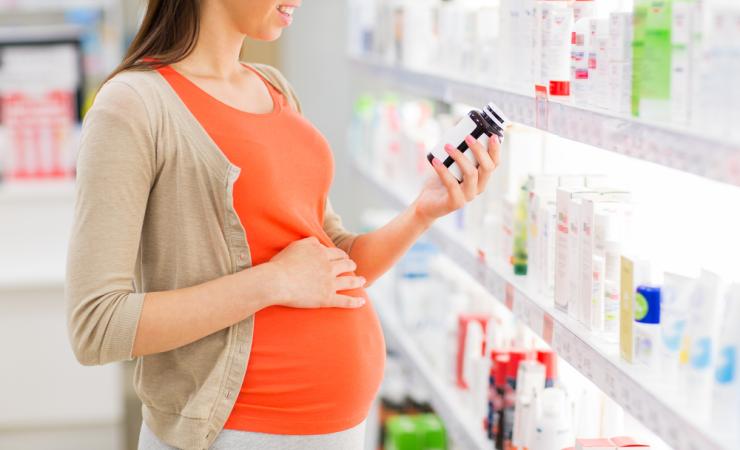Ensuring that our medicines are safe is a fundamental part of the drug approval process. However, there are knowledge gaps; currently, there is only adequate safety data on pregnancy available for around 5 % of medicines, while gathering robust knowledge using existing approaches can often take more than 20 years.
There is a particular challenge in assessing the impact of medicines on unborn babies and while breastfeeding. However, this is a difficult gap to bridge, in no small part because pregnant women are regularly excluded from clinical trials because of a fear of harming the developing foetus. Yet if mothers-to-be, new mothers and healthcare professionals have to make informed decisions, then they need information, which is why we need to determine new ways of gathering that.
Finding ways to achieve this has been the focus of IMI project ConcePTION. The 5-year project, which includes almost 90 organisations from 22 countries - as well as the European Medicines Agency – aims to extract detailed information through using a so-called ‘big data’ approach. The ConcePTION project collects and collates existing data from a variety of sources - including information that is not currently coordinated - and combines this with existing health data from routine care, gathered from major data sources across Europe. By using large-scale computing power to analyse the ‘big data’, the project will uncover patterns that can reveal the impact of medicines.
However, that’s not all it can do; by adopting a Learning Healthcare System (LHS) approach, big data can be used to learn directly from clinical practice and help improve it. An LHS seeks to align care and research in such a way that it produces valuable data more quickly, by taking account of what happens when women take their medicines in the real world. At the same time, collecting this type of information also requires building trust among the women involved, who need to see the value in this alternative approach to data collection.
If we’re to solve this challenge, we need to change the way we go about generating knowledge, and maximise what is available to us.
Marieke Hollestelle, University Medical Centre Utrecht
To try to determine what women felt about the LHS approach, interviewed 20 women in the Netherlands, asking them what they thought about the project and about taking part in such an approach, which would contribute something new to the evidence base. The results are published in the journal BMC Pregnancy and Childbirth.
The women surveyed wanted to be sure that their input and insights were given the weight they felt it deserved, and that the approach provided trustworthy data. Overall, the women interviewed reacted positively to the concept. They were motivated by the idea of contributing to making mothers and children safer during pregnancy and breastfeeding.
Those working within the ConcePTION project believe that the LHS approach will augment and supplement the other sources of information they have.
“If we’re to solve this challenge, we need to change the way we go about generating knowledge, and maximise what is available to us. There is a lot of personal experience among mothers on medication use during pregnancy that we should tap into. Taking an LHS approach opens up the range of opportunities available to us and allows to combine all available data sources,” explains Marieke Hollestelle, a PhD candidate in bioethics at the University Medical Centre Utrecht who is investigating the ethical issues within ConcePTION.
However, the women interviewed stress that support from members of the medical community was important in building trust in an LHS. But the idea of being able to ‘give something back’ had a genuine appeal. In particular, those women with chronic health conditions felt they had something significant to offer.
ConcePTION is supported by the Innovative Medicines Initiative, a partnership between the European Union and the European pharmaceutical industry.
